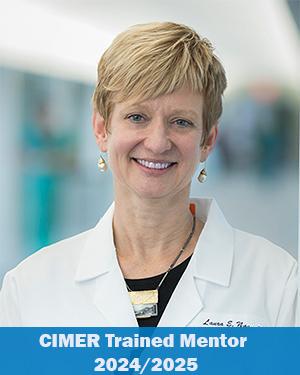Research News
02/07/2024
Cleveland Clinic awarded $3 million to investigate inflammation related to alcohol-associated liver disease
Dr. Laura Nagy’s lab aims to discover potential new treatments and interventions for diseases like cirrhosis.

Laura Nagy, PhD, has been awarded a five-year, $3 million grant by the National Institutes of Health to explore and advance treatments for alcohol-associated liver disease. This funding supports the Nagy Lab's investigations of the interplay between alcohol consumption, inflammation and cell damage that underlies diseases like cirrhosis.
Excess alcohol consumption can cause cells in the liver to become inflamed. Inflammation in turn may result in severe, irreversible damage and lead to liver diseases. The exact ways alcohol causes this inflammation are unknown, as are the specifics of how the inflammation causes physical damage.
"Alcohol contributes to an estimated three million deaths worldwide each year - that's about five percent of all deaths," says Dr. Nagy, Director of Cleveland Clinic's Northern Ohio Alcohol Center and Staff in the Department of Inflammation & Immunity. "To stop the progression of potentially fatal alcohol-associated diseases, it is essential to understand how the pivotal stages of injury occur."
Current treatments for these alcohol-associated liver diseases involve behavioral changes to cut out alcohol or broad-spectrum of anti-inflammatory medications like corticosteroids. Currently available anti-inflammatory medications do not work in all patients. They also do not reverse liver damage that has already occurred. For these patients, liver transplants are the only option.
The Nagy Lab's previous investigations discovered a specific pathway in the body linking cell death and inflammation, which appears to play a key role in the onset of alcohol-associated liver disease. This preliminary research set a direction for studies concentrating on the exact types of inflammation and cell damage alcohol can cause.
Mice lacking either IRAK-M, a modulator that influences inflammatory pathways, or Mincle, which activates inflammation in response to self-derived danger signals, are shielded from liver damage even after prolonged alcohol consumption. Dr. Nagy hopes to determine how the two proteins are involved in causing alcohol-related liver damage, with the goal of blocking or reversing their effects.
The Nagy lab's newly funded study will further investigate Mincle, IRAKM and a third inflammatory factor, TLR4, to understand how they work in coordination to affect liver inflammation and contribute to damage caused by alcohol consumption. Current anti-inflammatory medications are broad. Future treatments would potentially halt or even reverse liver inflammation through altering these specific processes.
Featured Experts
News Category
Related News
Research areas
Want To Support Ground-Breaking Research at Cleveland Clinic?
Discover how you can help Cleveland Clinic save lives and continue to lead the transformation of healthcare.
Give to Cleveland Clinic